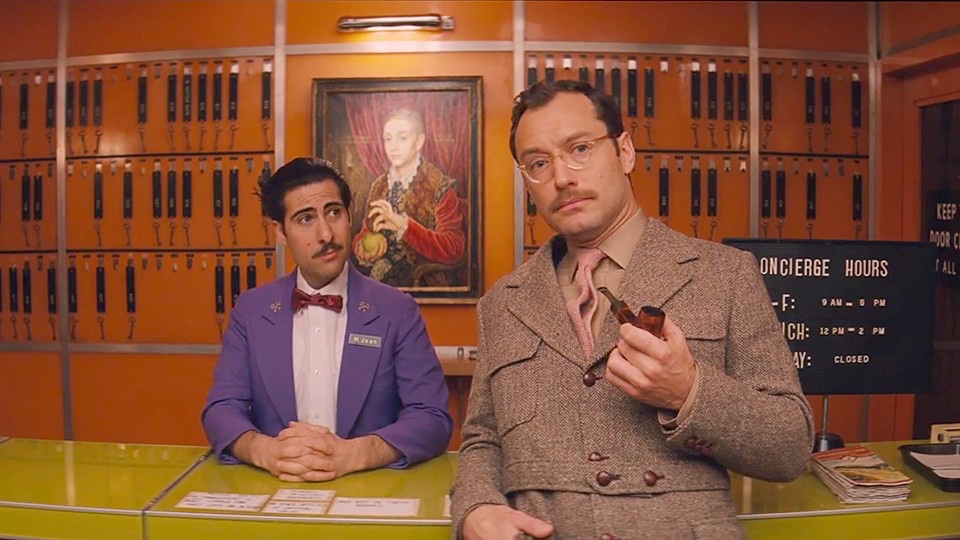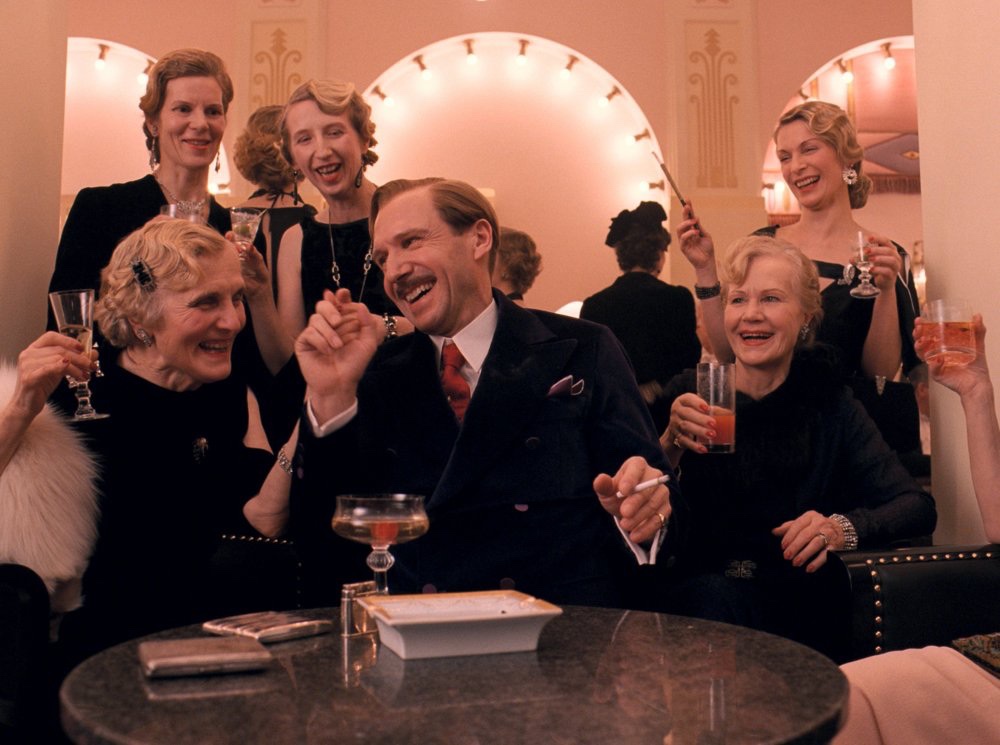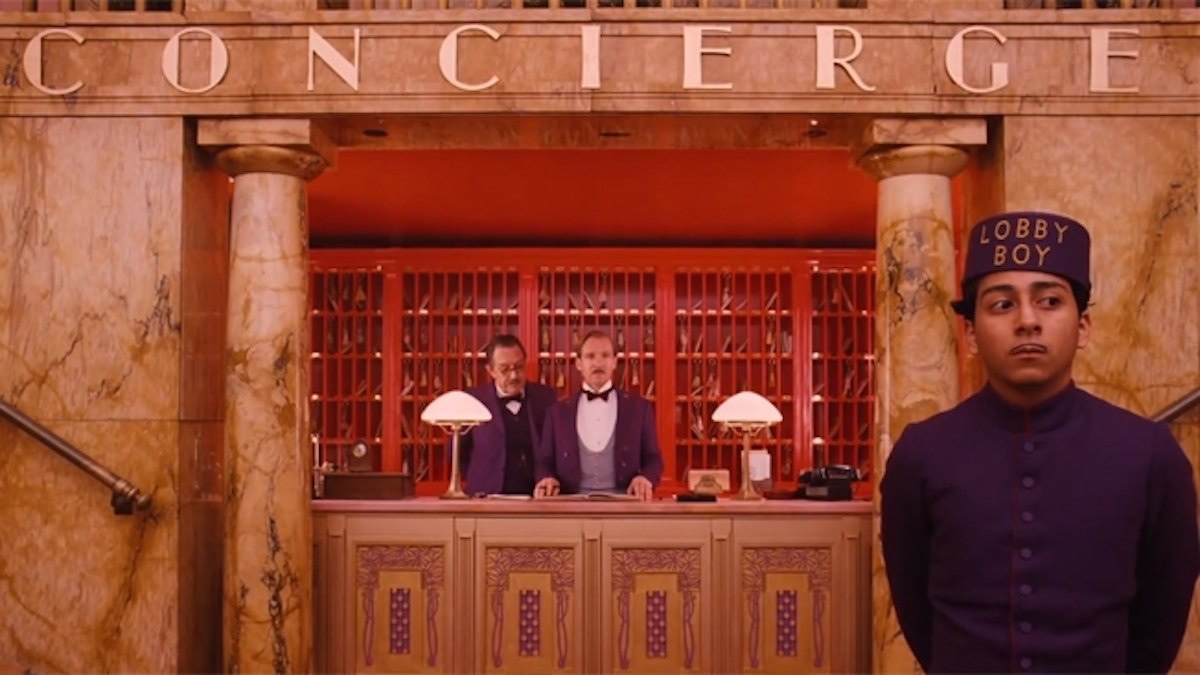The Grand Budapest Hotel was released in 2014 and is directed by Wes Anderson. The film chronicles the history of how the famous and extravagant Budapest Hotel came to be the quiet and forgotten establishment that it is in modern day. the majority of the film follows the hotels monsieur, M.Gustave (Ralph Fiennes) and the new lobby boy, Zero (Tony Revolori), and the various events that occur after the death of one of the hotels most wealthy clients, Madame D. (Gilda Swindon).
The story is told to us, the audience, by the author of the book(played at this point by Tom Wilkinson), The Grand Budapest Hotel, who recounts when he was younger (and played by Jude law) and visited the hotel only to meet its owner, Zero (F. Murray Abraham) who tells him the history of the hotel, and how he came to own it. Even after these mixed perspectives, the whole film seems to be from the view of a woman in modern day, who is simply reading the book that holds the story of the hotels rich history, which we see in the film.

Wes Anderson is known as a very stylistic director, which is completely apparent in the Gand Budapest Hotel. He seems to refrain from cutting as much as possible, which leads to most of the shots in the film being quite long and drawn out, often long-shots moving to keep up with the characters, or wide-shots done to encompass as much of a set, such as the hotel lobby, or characters, such as the scene in the red elevator, as possible.
The movie is also split into parts, such as part 5 “the second copy of the second will”. These occasional breaks in the story give the audience a split second to recollect. The reveal shot of what the new part is called also creates the sense of a grand play, which could of been what Wes Anderson was trying to replicate, or, and most likely, a book, since that is what we see at the beginning, that the story is a book in modern day.

I believe that The Grand Budapest Hotel holds an important place in film history. It is instantly recognisable, and goes to show that in-conventional means of direction, narrative and sequencing in a film can add style and charm to it, setting it apart from other movies. The film is only 7 years old, but is still regarded as a cult classic for its witty and funny dialogue, lovable characters, and compelling story.
I personally loved this movie to bits! I thought that it was hilarious, and excellent from a subjective filmmaking perspective, despite its initially odd and even comical style. The shots are immersive and beautiful, the cinematography and editing is masterful, the performances are all outstanding and even the mise-en-scen is detailed and adds to the distinct atmosphere of the movie. I believe that perhaps Wes Anderson was trying to convey a message about how ethnic minorities were treated in early 20th century Eastern Europe, and how fascist governments effected the ordinary people there, as seen in the prison sequence and tragic ending to the story.

I rate The grand Budapest Hotel ★★★★★!
You must be logged in to post a comment.